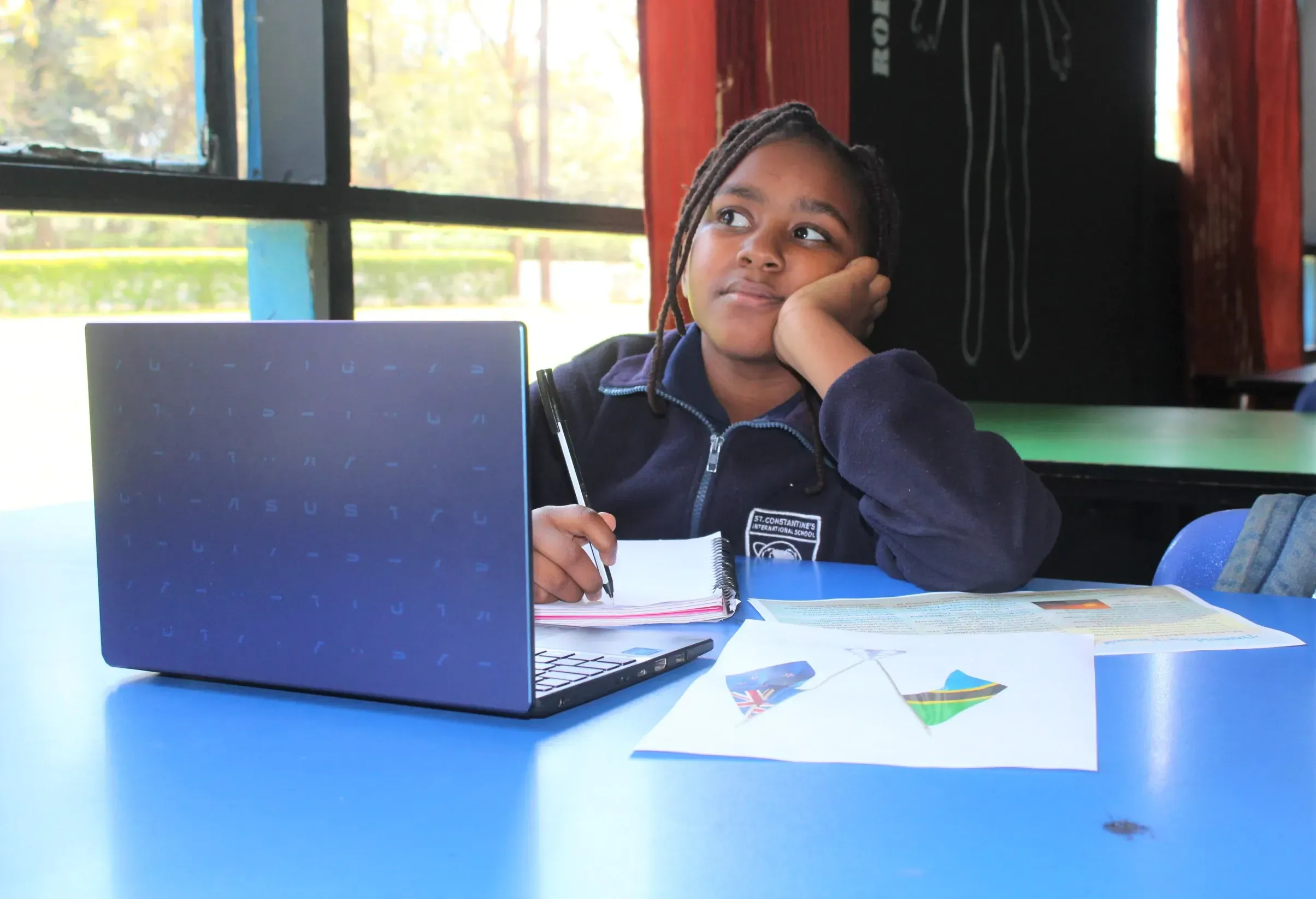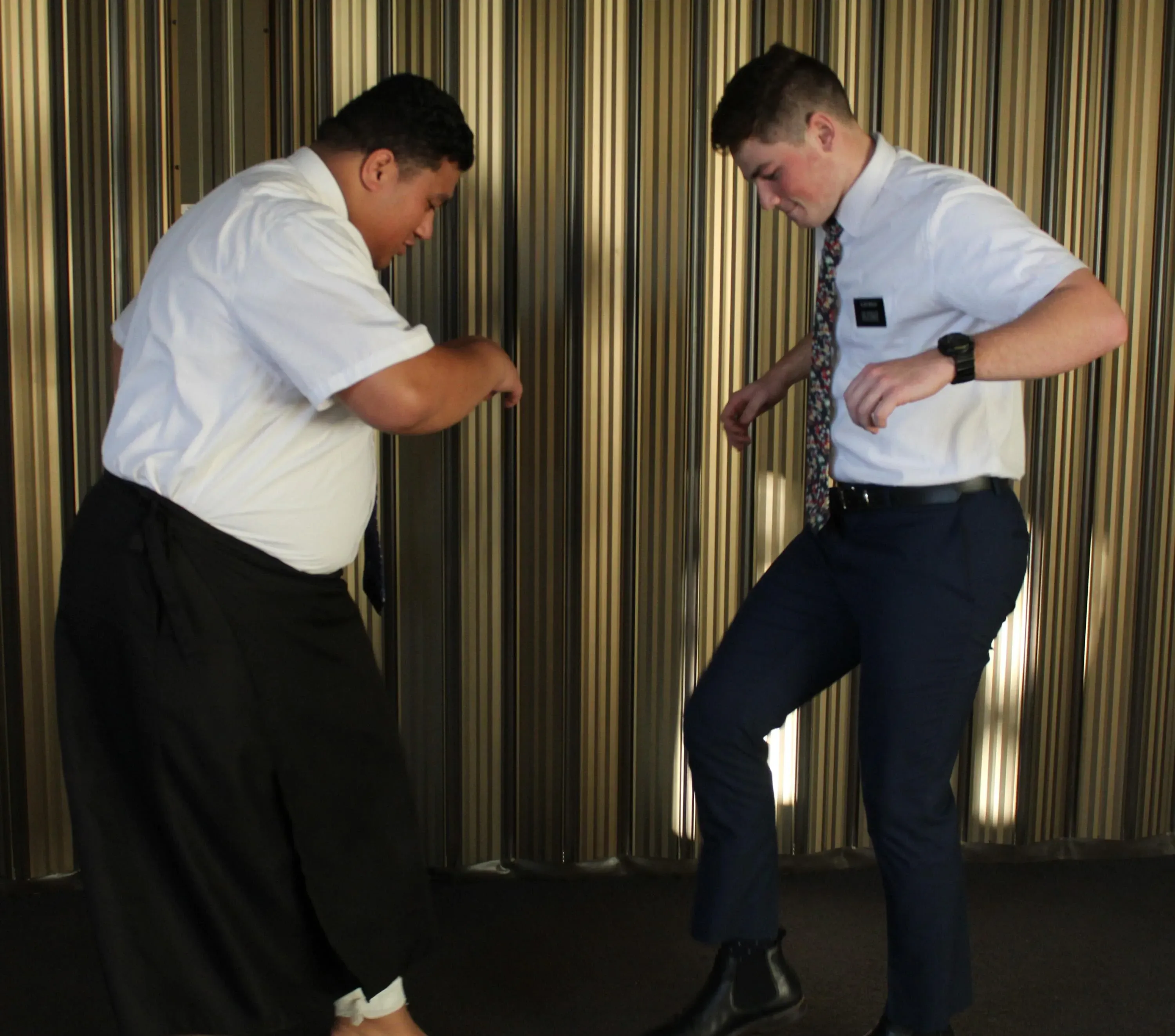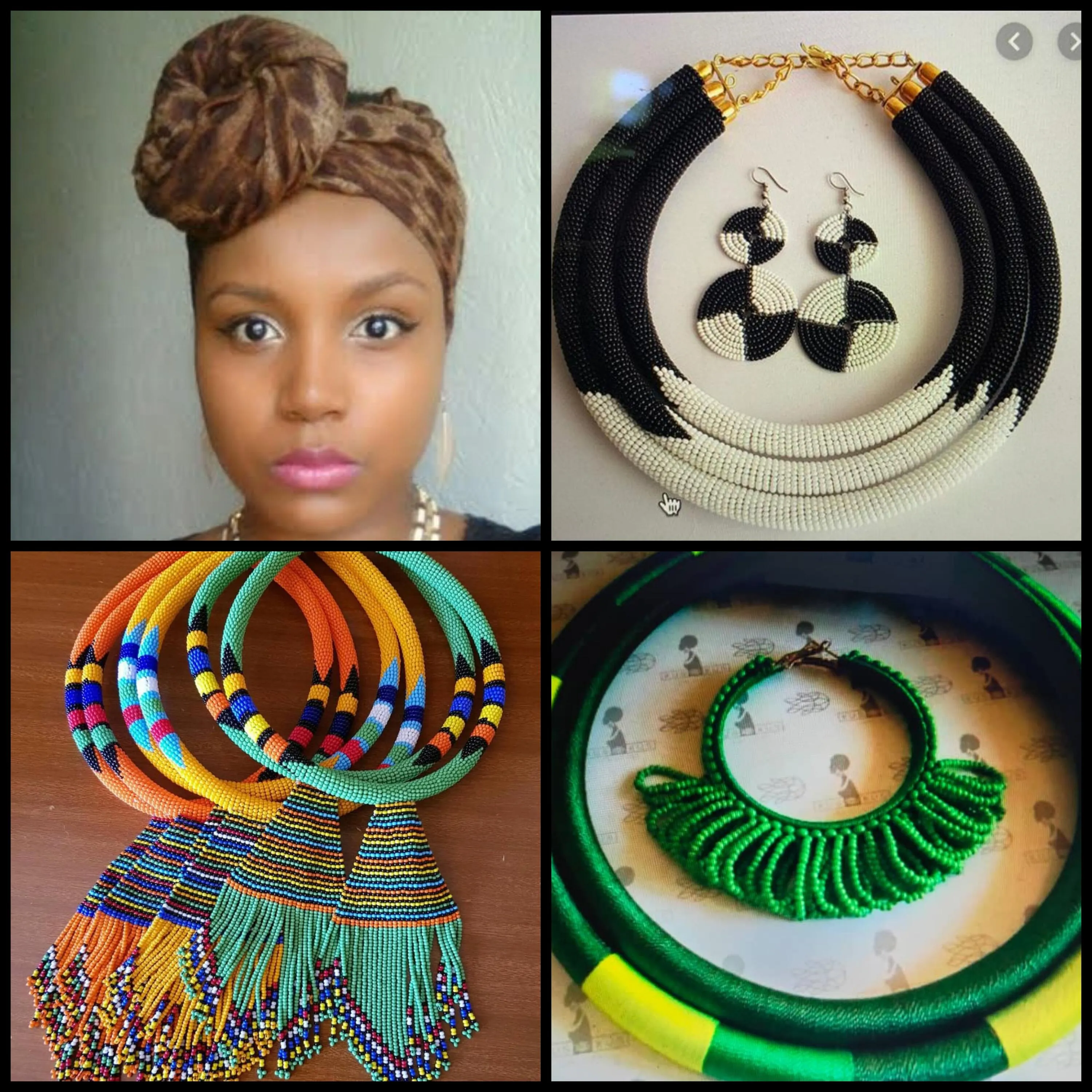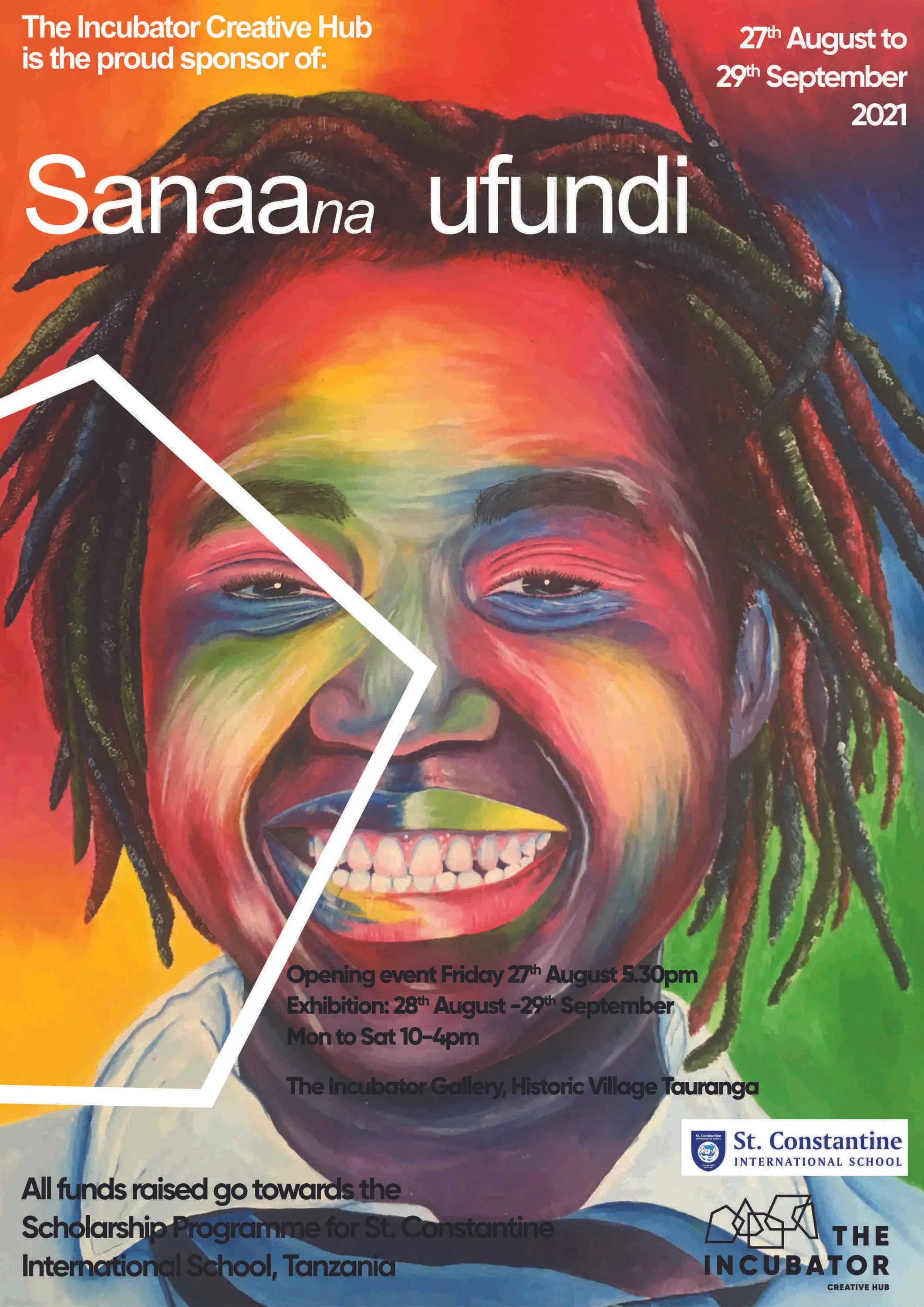Tanzania Art and Craft Exhibition postponed until September 4
Written by

St. Constantine International School first-ever Tanzania/New Zealand art and craft exhibition delayed until September 4.
PRESS RELEASE
The launch event for the first-ever Tanzanian/New Zealand student art exhibition has been postponed due to the current Covid-19 lockdown.
The launch, due to be this Friday at Tauranga’s Incubator Creative Hub, was to include Tanzanian dances and music, a zoom connection to the students at St. Constantine International School, Tanzania and the official launch by the Hon Jan Tinetti, Minister for Women and Deputy Minister of Education, followed by traditional Tanzanian food.
However, due to the current Delta outbreak, the exhibition and its launch event are being delayed until the country reaches at least Level 2 in the lockdown order. It is planned that the exhibition should open Saturday September 4 and the launch event will be transformed into a celebratory closing event at the end of the month.
Based on a theme encompassing the life and passions of Tanzania, as designated by Kenyan art master, Geoffrey Namulala, already - while unpacking the artwork on its arrival - the first picture was sold. The new owners agreed to leave their “Street Boy” in the exhibition so others could readily see the talent of these East African students.
Stranded back home in New Zealand, St. Constantine International’s marketing director, Leonie Trubshoe, decided to organise the art and craft exhibition as part of a campaign to raise funds to help poor gifted students gain an international education at secondary level, and The Incubator was quick to step in as a major sponsor of the exhibition.
“We know without a doubt that art is empowering for the mind, body and soul. It is a universal language that connects the community,” says Simone Anderson, Director of The Incubator.
“I am very passionate about the necessity of creativity, art and aesthetics within communities,” Anderson says. “I believe we need to work to create an edgy and contemporary cohesive international arts community, with accessibility to art on all levels.”
Located in Tauranga’s Historic Village, the resident music venue – The Jam Factory – is also lending its skills. “We are committed to building social connections and cultural diversity through the art of music,” Anderson says.
The highly rated safari company - Tazama Africa - has donated a five-day safari to be raffled during the exhibition, valid until 2023 and the students’ artwork will be for sale, along with a “village craft stall” with blankets, jewellery, laptop bags, sandals, baskets, fabrics, and the like, made by parents and school supporters.
“We are also working with a group of young elders from the Mt Maunganui Church of Jesus Christ of Latter-Day Saints for the launch dances as, due to Covid, we can't bring dancers over from our school.
The music they will dance to, travels from traditional sounds through to modern day reggae and Tanzanian pop, showing the various genres of the country…. not to mention the sounds of the “Big 5”, Trubshoe says.
St. Constantine International is one of the top private schools in Tanzania and had been favoured by the attendance of many UN agency children, NGOs, and the families of executives from major international companies.
Paying fees at the upper end of the scale, the profits from these students had been used to create partial scholarships for highly talented, poorer students who would benefit from an international education - the Cambridge International examination system - and show potential to be leaders within their own country.
However, due to the mass exodus of international organisation families because of Covid, despite Arusha’s infection numbers being very low, they have next to no ongoing scholarship funding coming in, says Trubshoe.
“Net enrolment ratios in the senior years in Tanzania are less than 4% and class sizes in Government schools are often over 120 pupils per class - so, in order to create leaders within the country, we need to be able to help the very talented amongst the poor.”
“For the last three years – including through lockdown – 100% of our A-level students passed. Our results received from Cambridge last week showed our 26 graduates all passing again this year, most with the prestigious A* marks,” says Trubshoe. “16 of the students were girls, who also took the top three positions in the school.”
“Our exams and assessments were graded in Cambridge, UK alongside their international equivalents, despite most not having English as a first language, and a period of being in lockdown - many with only borrowed tablets from school on which to work - and erratic internet service”, she says.
The Colours of Happiness picture used for the promotion of the event was done by former student, Anjli Sisodiya, now located in London and a Graphic Design graduate returning to do her Master’s in Digital Marketing.
“You hear a lot about happiness in our school,” says new principal, Yasir Patel, a recent visitor to Tauranga and The Incubator, while teaching in Auckland and before leaving to take up his Tanzanian post. “We are a high-achieving, happy, British education-based school, with a Tanzanian heart. This is where future leaders are created. Our happy school is built on the notion that pupils develop a strong self-concept, because they are challenged appropriately every day through the highest quality teaching and learning.
This means pupils learn to stand on their own two feet, to be resilient, so they persist in the face of difficulty. In so doing, they become independent learners who are prepared for twenty-first century life and leadership in a global world, and the work behind this exhibition is an example of their desire to not only help themselves, but help others along the way”, Patel says.
“For example, the Upper Primary Year 6 class have created beautiful brochures promoting Tanzania, to help their parents and the local safari and hospitality companies they work for, to rebuild their businesses. These will be available during the exhibition,” he says.
http://www.scis.sc.tz

